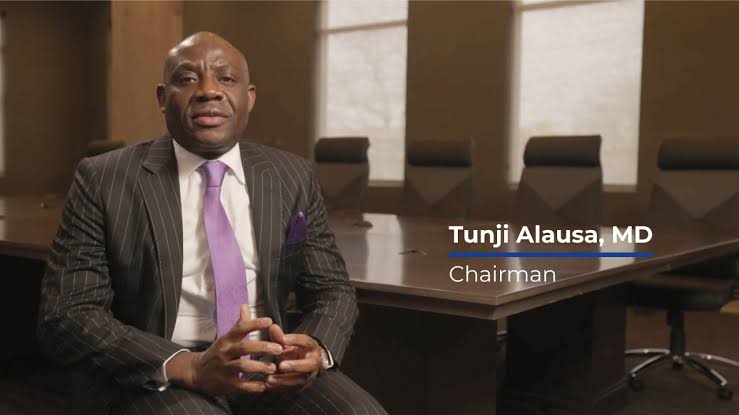Mohammed Rabi’u Musa Kwankwaso, also known as Rabi’u Kwankwaso, is a prominent Nigerian politician who has had a long and eventful career in public service. Born on October 21, 1956, in Kano, Nigeria, Kwankwaso hails from a Sunni Fulani family of the Genawa Fulani Clan. With a strong educational background and a passion for leadership, Kwankwaso has made significant contributions to Nigerian politics and governance.
Education And Early Career
Kwankwaso’s educational journey began at Kwankwaso Primary School and Gwarzo Boarding Senior Primary School. He furthered his studies at Kano Technical College, where he obtained his National Diploma and Higher National Diploma. Kwankwaso’s commitment to education led him to pursue postgraduate studies in the United Kingdom at Middlesex Polytechnic and Loughborough University of Technology, where he earned a master’s degree in civil engineering in 1985.
After completing his education, Kwankwaso joined the Kano State Water Resources and Engineering Construction Agency in 1975. He served in various capacities within the agency, steadily rising through the ranks to become the principal water engineer. This experience in the civil service honed his skills and provided him with a strong understanding of infrastructure development.
Political Career
In 1992, Kwankwaso made his entry into politics as a member of the Social Democratic Party (SDP). He aligned himself with the People’s Front faction of the SDP, led by General Shehu Yar’adua and other influential politicians. Kwankwaso’s political career gained momentum when he was elected as a member of the House of Representatives, representing Madobi Federal Constituency. His subsequent election as deputy speaker of the House brought him into the national political spotlight.
Kwankwaso’s political journey continued as he participated in the 1995 Constitutional Conference, representing Kano as a member of the People’s Democratic Movement. He later joined the Democratic Party of Nigeria during the political transition program of General Sani Abacha.
Governorship And Ministerial Roles
In 1998, Kwankwaso joined the People’s Democratic Party (PDP) under the platform of the People’s Democratic Movement in Kano. He contested the PDP primaries for the governorship of Kano State and emerged victorious, serving as the governor from May 1999 to May 2003. During his first term, Kwankwaso faced opposition from various groups critical of his administration’s policies. However, he implemented several developmental projects, including the construction of roads, schools, hospitals, and water supply schemes.
After his tenure as governor, Kwankwaso was appointed as the Minister of Defence in 2003, serving until 2007. As the Minister of Defence, he played a crucial role in the transformation and modernization of Nigeria’s military forces.
Return To Governorship And Senatorial Role
Kwankwaso’s political career experienced a resurgence when he was reelected as the governor of Kano State in 2011, serving until 2015. During his second term, he focused on education, healthcare, and infrastructure development, implementing policies and projects aimed at improving the lives of the people of Kano.
Ideology And Public Image
Rabi’u Kwankwaso’s ideology has been described as a combination of far-right social stances and left-wing economic stances, often referred to as the Third Position. This ideological mix sets him apart from traditional political alignments in Nigeria.
Infrastructure And Education
During his tenure as governor of Kano State, Kwankwaso made significant strides in infrastructure development and education. He established the Kano University of Science and Technology in Wudil, the first state university in Kano at the time. Additionally, he established the North West University, Kano, the second state university in the region. Kwankwaso also established numerous academic and manpower development training institutes, providing training and empowerment opportunities for over 360,000 youth and women. He introduced free school feeding and uniforms for primary school pupils, leading to a significant increase in school enrollment. Kwankwaso’s commitment to education also extended to scholarships, with over 2,600 postgraduate and undergraduate scholarships awarded to students in various countries.
In terms of infrastructure, Kwankwaso oversaw the construction of three flyover bridges, dual-carriage lighted roads in each of the 44 Local Government Areas of Kano, and two underpass bridges. He also initiated the covering of drainages with interlocking tiles, improving the environmental and sanitary conditions of the city. Kwankwaso built houses and estates, including three modern cities with about 3,000 housing units. He also constructed and donated houses to rural poor communities and victims of flood disasters.
Philanthropy
After leaving office, Kwankwaso launched the Kwankwasiyya Development Foundation (KDF) to support the people of Kano state and Nigeria. Through the foundation, he provided financial assistance for education, supporting many young people in furthering their studies. The foundation also secured the release of inmates in various prisons across Nigeria by paying their fines and providing transportation. Kwankwaso donated sports kits and cash to amateur football clubs and provided cash and food items to the poor and needy, including widows, people with disabilities, and orphans. His philanthropic efforts aimed to promote literacy, alleviate poverty, and support education.
Corruption Allegations
Kwankwaso has faced corruption allegations during his political career. In 2004, a commission of inquiry was set up to investigate his activities as governor of Kano State. In 2015, a petition was filed against him, accusing him of breaking the Kano State Pension and Gratuity Law of 2007 and misappropriating funds. The allegations claimed that he directed pension remittances to be used for housing development but intervened to allocate houses to his associates.
In response to these allegations, Kwankwaso has strongly denied and rejected any corruption charges, describing them as political blackmail and untrue. He has filed a lawsuit seeking compensation for the tarnishing of his image. The Economic and Financial Crimes Commission (EFCC) initially restrained from arresting or restraining Kwankwaso in its investigation but later obtained a judgment to investigate, arrest, and prosecute him.
Presidential Candidate
Kwankwaso has also pursued a career in national politics. In 2014, he announced his intention to run for the position of President of Nigeria under the All Progressives Congress (APC) party. He participated in the party’s primary election, where he came in second place behind Muhammadu Buhari, who went on to win the 2015 general election.
Following a disagreement with his former Deputy Governor, Abdullahi Ganduje, Kwankwaso left the APC and joined the People’s Democratic Party (PDP). In 2018, he contested in the PDP presidential primary election but came in fourth place, with Atiku Abubakar emerging as the winner. However, Atiku later lost in the 2019 general election.
In 2022, Kwankwaso joined the New Nigeria Peoples Party (NNPP) and won the presidential primary held that year. During the 2023 Nigeria presidential election, he secured fourth place with nearly 1.5 million votes. Prior to the election, Kwankwaso was invited to the Royal Institute of International Affairs, Chatham House, UK, to discuss his vision for Nigeria.

